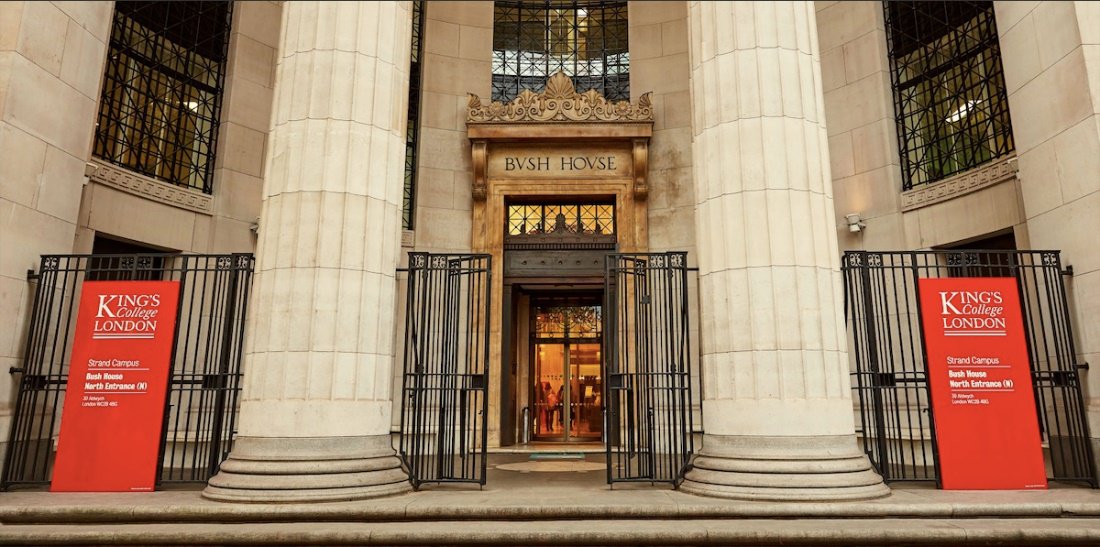International Women’s Day – A Call to Action

Last night I attended a talk about matters concerning women around the world, in the run up to International Women’s Day.
The event was hosted by Julia Gillard and the King’s Global Institute for Women’s Leadership, with Rt Hon Bridget Phillipson and Kelly Beaver, CEO of IPSOS. We listened to a timely discussion about matters concerning and of concern to women around the world.
I’ve been to a few of these in the past. Talks that looked at the data and discussed ways to aid, advocate and bring about equality and parity of women around the world with their male counterparts.
This was the first I’ve attended for some time. And also the first time where I’ve really felt quite saddened.
None of the information shared was new or unexpected. But it hammered home how much impact some of the evolving attitudes have had on political landscape across the world.
The stats shared by Emma at IPSOS (including some from the FT, too) showed an undeniable trend amongst our youth: the separation of ideologies and attitudes between the genders.
Other key trends were the disillusionment and skew towards conservatism of young men and the kick back against the older generations’ inclination to tolerance and progress.
We can see this across South Korea, US, Germany and UK. In fact the ideology gap seen in South Korea was so wide that the male skew to the right almost dropped off the edge of chart.
The fact that perceived ‘tensions between genders’ are the most pronounced for Gen Z (59%) compared to Millennials (54%) Gen X (49%) and Boomers (40%) is quite telling.
Almost 57% of Gen Z men agreed that:
we have gone so far in promoting women’s equality that we are discriminating against men
But interestingly 36% of their female counterparts said the same. A phenomenon which it would have been good to have drilled into a little further. Especially given the timely nature of this event, just days before International Women’s Day.
What is making them think this?
My curious brain needed more. Caitlin Moran’s article a few years back (and her subsequent book) included a bit of insight into this rebellion, and the ‘negging’ of men:
“I don’t understand!” this woman continued. “His parents are so nice! They read the Guardian! I don’t understand why they have a son like this!”
I paused. I did know why.
“Well, it’s because they’re lovely, leftwing, Guardian-reading people,” I replied, eventually. “Do they ever say things like, ‘Typical men!’ or, ‘Ugh, toxic patriarchy!’?”
My friend thought.
“Of course,” she said. “They live in Hackney.”
Bridget Phillipson touched upon some points around the availability of unrealistic and sexually violent porn, providing a distorted view on the roles of men and women. A lack of positive male role models and other socio-economic factors were also cited as key reasons behind some of the troubling stats.

Nothing we don’t know already, but what’s being done about it?
It’s clear that social media bubbles and echo chambers have removed the exposure to different opinions and ideas. As well as eroding a capacity for critical thinking.
But the more subtle, throwaway comments of the people nearest and dearest to children will also have a huge impact on the formation of their attitudes.
It was discussed that more needs to be done within the National Curriculum to build skills of debate and critical thinking. And we need to raise awareness of bad actors, their intentions, and the need to separate fact from fiction. This can only get trickier in this AI and bot riddled world.
The National Curriculum is currently under review, so here’s hoping Bridget can get this incorporated.
But tech and international tensions evolve faster than we make laws to educate – as well as enforce and regulate. So, we need a collective effort to steer Gen Alpha to a more universal narrative. We must protect them from falling into the zero-sum thinking that has crept into our young adults.
The Online Safety Act was also mentioned. But again: policies and laws are only a start, and can take too long to enact.
We, as individuals and businesses, need to be thinking collectively and holistically about how we actively engage with the Gen Zs. And not just for one day a year. This push must go beyond International Women’s Day.
Businesses should ask:
- How can we unpick the reasoning behind these thought patterns and attitudes?
- Why do they think there’s been an over correction?
- What other factors are at play?
We need to listen and learn – not just dictate and control.
Usually these talks end with something like ‘there’s still work we need to do’.
But I left this talk thinking ‘there’s more work to do than ever’.
We can only do that work as a collective: women, men, young and old – and it isn’t just the remit of the state.
There’s a need for us as businesses and individuals to assume responsibility and pick up the baton.
This isn’t just about gender politics, it’s about all politics, as well as the future safety and democracy of the free world.
Now if that ain’t a call to arms, I don’t know what is.





